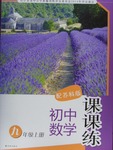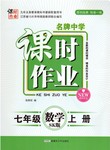题目内容
Finally, the policemen ________ the figure in the darkness. It was Jim.
- A.set out
- B.made out
- C.worked out
- D.let out
B

练习册系列答案
 课课练江苏系列答案
课课练江苏系列答案 名牌中学课时作业系列答案
名牌中学课时作业系列答案
相关题目
It snowed again. My seventh Christmas was round the corner. I dreamed of getting the present from Father Christmas until my elder sister dropped the bomb, “There is no Father Christmas.”
I ran to my grandmother’s house, for she always told the truth. Grandma was at home. I told __11___ everything. “No Father Christmas?” she was a little ___12____. “Don’t believe it. Put on your coat, and let’s go.”
“Go? Where, Grandma?” I asked.
“Kerby’s Store.”
As we walked through its doors, Grandma handed me ten dollars and said, “Take the __13___ and buy something for someone who needs it. I’ll wait for in the car.” Then she turned and walked out of the Kerby’s.
For a few seconds I just stood there, holding the money, wondering ___14___ to buy, and who to buy it for.
I thought of ___15___ I knew: my family, my friends, my neighbors … I suddenly thought of Bobbie Decker, a __16___ with bad and messy hair. He sat right behind me ___17____ Mrs. Pollack’s class.
Bobbie ___18___ went to any party during the winter. His mother always wrote a note, telling the teacher that he had a cough, ___19____ we all knew that he didn’t have a cough, and he didn’t have a coat. I decided to buy Bobbie a red warm coat ___20____ he would like.
That evening, Grandma helped me wrap the coat in Christmas paper and ribbons, and ___21___ “To Bobbie, From Father Christmas” on it. Grandma told me Father Christmas never let people know that he ___22___ them. Then she drove me over to Bobbie’s house, telling that I was helping Father Christmas ____23___ the presents.
Grandma parked the car along the street, and we hid behind the trees near Bobbie’s house. Then Grandma said to me, “All right, Father Christmas, get going.”
I took a deep breath, rushed to his front door, put the present down. ____24___ the door, rang the doorbell and flew back to the safety of the ____25_____ and Grandma. We waited breathlessly in the dark for the front door to open. Finally it did, and there stood Bobbie.
That night, I realized that Father Christmas was alive and well, and we were on his team.
【小题8】A. always B. often C. sometime D never
I ran to my grandmother’s house, for she always told the truth. Grandma was at home. I told __11___ everything. “No Father Christmas?” she was a little ___12____. “Don’t believe it. Put on your coat, and let’s go.”
“Go? Where, Grandma?” I asked.
“Kerby’s Store.”
As we walked through its doors, Grandma handed me ten dollars and said, “Take the __13___ and buy something for someone who needs it. I’ll wait for in the car.” Then she turned and walked out of the Kerby’s.
For a few seconds I just stood there, holding the money, wondering ___14___ to buy, and who to buy it for.
I thought of ___15___ I knew: my family, my friends, my neighbors … I suddenly thought of Bobbie Decker, a __16___ with bad and messy hair. He sat right behind me ___17____ Mrs. Pollack’s class.
Bobbie ___18___ went to any party during the winter. His mother always wrote a note, telling the teacher that he had a cough, ___19____ we all knew that he didn’t have a cough, and he didn’t have a coat. I decided to buy Bobbie a red warm coat ___20____ he would like.
That evening, Grandma helped me wrap the coat in Christmas paper and ribbons, and ___21___ “To Bobbie, From Father Christmas” on it. Grandma told me Father Christmas never let people know that he ___22___ them. Then she drove me over to Bobbie’s house, telling that I was helping Father Christmas ____23___ the presents.
Grandma parked the car along the street, and we hid behind the trees near Bobbie’s house. Then Grandma said to me, “All right, Father Christmas, get going.”
I took a deep breath, rushed to his front door, put the present down. ____24___ the door, rang the doorbell and flew back to the safety of the ____25_____ and Grandma. We waited breathlessly in the dark for the front door to open. Finally it did, and there stood Bobbie.
That night, I realized that Father Christmas was alive and well, and we were on his team.
| 【小题1】 |
|
| 【小题2】 |
|
| 【小题3】 |
|
| 【小题4】 |
|
| 【小题5】 |
|
| 【小题6】 |
|
| 【小题7】 |
|
| 【小题9】 |
|
| 【小题10】 |
|
| 【小题11】 |
|
| 【小题12】 |
|
| 【小题13】 |
|
| 【小题14】 |
|
| 【小题15】 |
|
I heard the bees long before I saw them.
It was a very hot afternoon, and we decided to cool off in the river near my home. As we climbed down a small rocky hill toward the water, my boyfriend John suddenly started to shout then jumped into the water below. Peter and Mary quickly followed but I was too far away to jump. I was trapped.
I heard a low hum(嗡嗡声),which was growing louder. From a distance, the group of bees looked almost like a cloud of smoke. As it got closer, I realized it was actually thousands of bees flying towards me.
All I could do was cover my face with hands. Crazily, I thought that if I sat very still, the bees would think I was just another rock.
After a few minutes, I knew my plan hadn’t worked. The bees were attacking me. I could hear my friends shouting at me to get down to the pool fast.
But it wasn’t so easy. I was in great pain and the only way I could get away was to use my hands to climb down the rocks. However, I was afraid to do that at first because my face would be unprotected. The noise the bees made was so loud and frightening, but I had no choice.
I rushed down the rocks and jumped into the pool, but I don’t remember doing it. I was just so happy to be free from the pain. I was safe, and the water felt wonderful.
But we still weren’t out of danger. Every time we tried to climb out of the pool, the bees flew back over our heads. We spent the next three hours in the water, putting our heads under the water from time to time to avoid the bees until they finally lost interest.
【小题1】 How many people went swimming that day?
【小题2】The underlined word “it” (in Paragraph 3) refers to .
【小题3】 At first why didn’t the writer want to climb down the rocks?
【小题4】 How did the writer escape the bees?
【小题5】In what order are the following mentioned in the story?
a. The writer rushed down the rocks.
b. John jumped into the water.
c. The low hum grew louder.
d. The bees flew back over their heads.
e. The bees were attacking the writer.
It was a very hot afternoon, and we decided to cool off in the river near my home. As we climbed down a small rocky hill toward the water, my boyfriend John suddenly started to shout then jumped into the water below. Peter and Mary quickly followed but I was too far away to jump. I was trapped.
I heard a low hum(嗡嗡声),which was growing louder. From a distance, the group of bees looked almost like a cloud of smoke. As it got closer, I realized it was actually thousands of bees flying towards me.
All I could do was cover my face with hands. Crazily, I thought that if I sat very still, the bees would think I was just another rock.
After a few minutes, I knew my plan hadn’t worked. The bees were attacking me. I could hear my friends shouting at me to get down to the pool fast.
But it wasn’t so easy. I was in great pain and the only way I could get away was to use my hands to climb down the rocks. However, I was afraid to do that at first because my face would be unprotected. The noise the bees made was so loud and frightening, but I had no choice.
I rushed down the rocks and jumped into the pool, but I don’t remember doing it. I was just so happy to be free from the pain. I was safe, and the water felt wonderful.
But we still weren’t out of danger. Every time we tried to climb out of the pool, the bees flew back over our heads. We spent the next three hours in the water, putting our heads under the water from time to time to avoid the bees until they finally lost interest.
【小题1】 How many people went swimming that day?
| A.Two. | B.Three | C.Four | D.Five |
| A.a rock | B.the group of bees | C.a hill | D.the river |
| A.She was afraid she would fall. |
| B.She was too far away from pool. |
| C.She thought the bees would follow her. |
| D.She didn’t want her face to be unprotected. |
| A.She covered her face with her hands. |
| B.She hid behind the rocks. |
| C.She jumped into a water pool. |
| D.She pretended to be a rock. |
a. The writer rushed down the rocks.
b. John jumped into the water.
c. The low hum grew louder.
d. The bees flew back over their heads.
e. The bees were attacking the writer.
| A.b c e a d | B.b a e c d | C.c d e a b | D.c b d e a |